Policy paper
Europe’s Green New Deal – what’s in it for energy citizens?
On the 11th of December, 2019, the new EU Commission, headed by Commission President Ursula von der Leyen, presented its vision for a ‘European Green Deal’. What is this European Green Deal you may ask? Many others - including a Brussels-based Thinktank, E3G - have already provided a good explanation of what the European Green Deal is, so we won’t go into that here.
The more important question we would like to address is: how will the European Green Deal, as an overarching policy, impact Europe’s transition to energy democracy, and energy communities in particular?
When reading the EU’s Communication on the European Green Deal, it is a bit difficult to decipher how the European Green Deal will affect energy communities. After all, there is only one single reference to energy communities in the entire Communication. When the previous Commission under President Juncker released its Energy Union Strategy, the narrative was strong: a vision of an Energy Union “with citizens at its core, where citizens take ownership of the energy transition, benefit from new technologies to reduce their bills, participate actively in the market, and where vulnerable consumers are protected.”
Even though the Communication on the European Green deal lacks a catchy narrative on providing citizens ownership in the energy transition, it sends a strong message on the need to ensure a socially fair and inclusive energy transition. Therefore, several of the concrete proposals related to the Green Deal provide a lot of potential to give energy citizens opportunities to become active in Europe’s clean energy transition.
Below are the main elements of the Green Deal that will be relevant for energy communities:
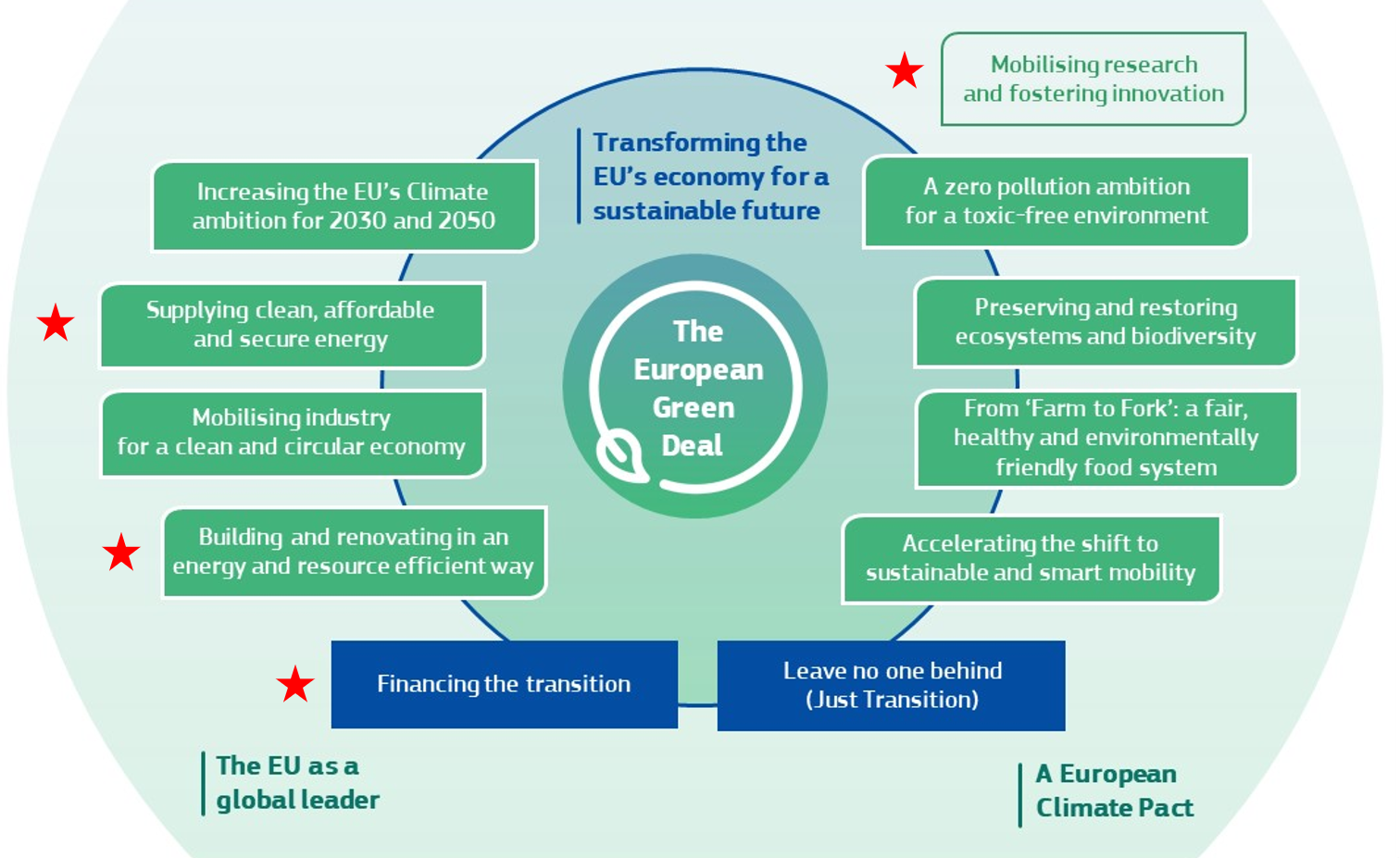
Supplying clean, affordable and secure energy
The von der Leyen Commission rightly acknowledges that the EU’s existing climate and energy ambition is an inadequate response to the challenge of climate change. Unprecedentedly, the Clean Energy Package (which includes the recast Renewables Directive and legislation for a new electricity market design) acknowledges and supports citizens that want to invest and take ownership in the energy transition – both individually and collectively through ‘renewable energy communities’ (RECs) and ‘citizen energy communities’ (CECs). Overall, however, the CEP’s political ambition to fight against climate change was lagging.
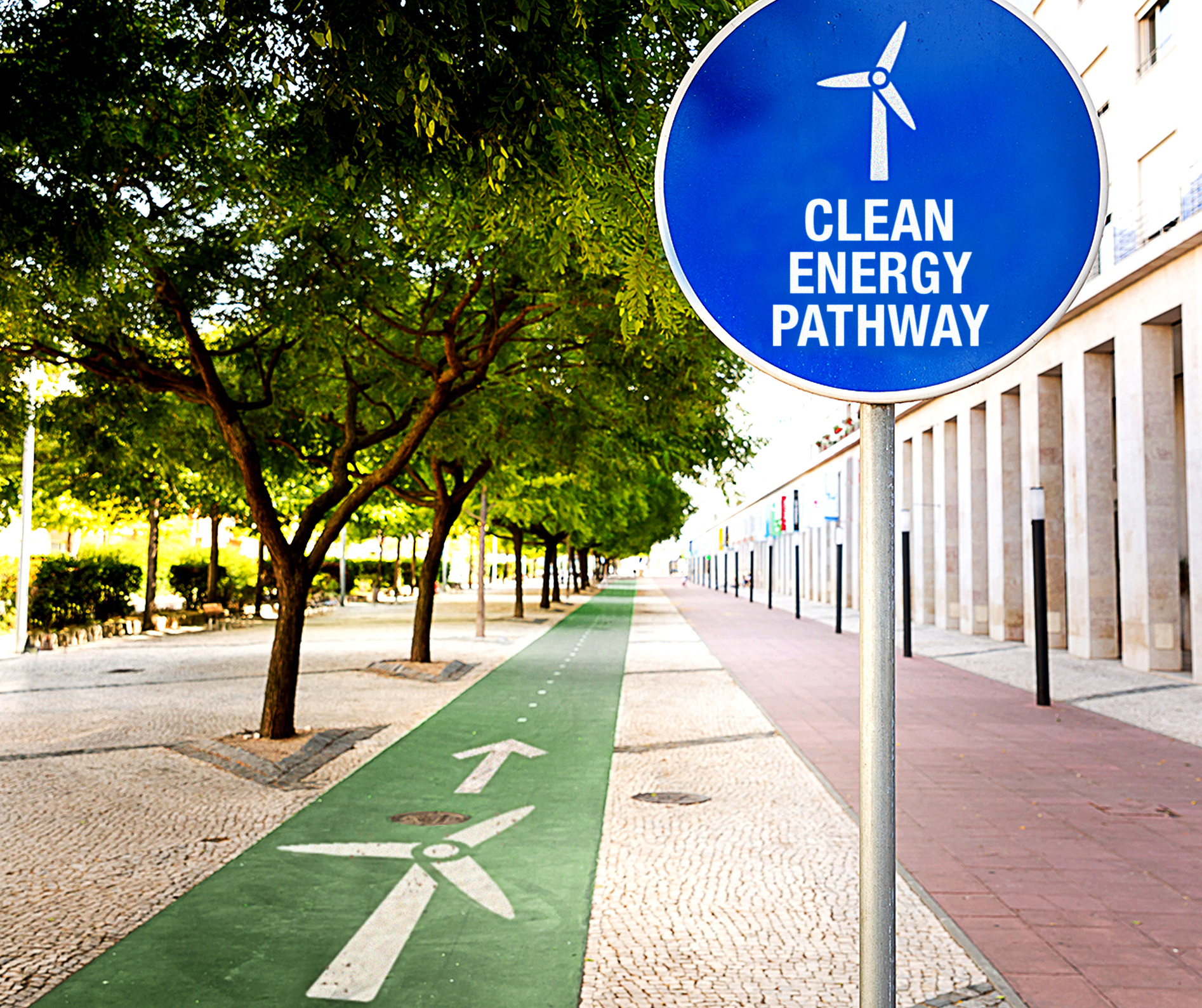
Interestingly, the new Commission has committed to increasing climate ambition for 2030, which likely means higher renewable energy, energy efficiency and greenhouse gas reduction targets. The Commission says it will review the targets and propose revisions of relevant legislation by June 2021. While these legislative proposals are unlikely to impact any of the new EU provisions on energy communities, stronger ambition would certainly provide a greater need for citizens to help drive investments in clean energy technologies.
Regardless of the level of climate ambition, however, the Commission will need to place a high priority on ensuring that the new EU legislation on RECs and CECs is effectively transposed and then properly implemented in each EU Member State. In particular, the Commission will need to actively use its monitoring authority under the Energy Union Governance Regulation, and its traditional enforcement authority, to ensure that the REC and CEC definitions are not abused, national enabling frameworks for energy communities are effective, their rights are respected, and that they have a level playing field to participate across the market.
Buildings renovation and addressing energy poverty
Buildings renovation is seen as a centerpiece of the Commission’s Green Deal Strategy. This will include potential revisions to strengthen policies and legislation related to buildings, a new platform to bring different stakeholders together to address barriers to renovation, and new innovative EU financing schemes for renovations. Close attention will be paid to barriers to investing in energy efficiency improvements in rented and multi-owner buildings, as well as social housing.
Energy cooperatives have long focused on energy efficiency, using various programmes to engage citizens to lower consumption, deploy more efficient infrastructure, and focus on energy poverty. Increasingly, energy cooperatives support members and the community at large to trigger buildings renovations projects, providing advice and other forms of assistance to citizens and local authorities. They also have a unique track record of supporting collective decision making and mobilising local investment. Therefore, it will be important to ensure energy communities can participate in dialogues and developing solutions around addressing regulatory and financing barriers to contributing to Europe’s renovation wave.
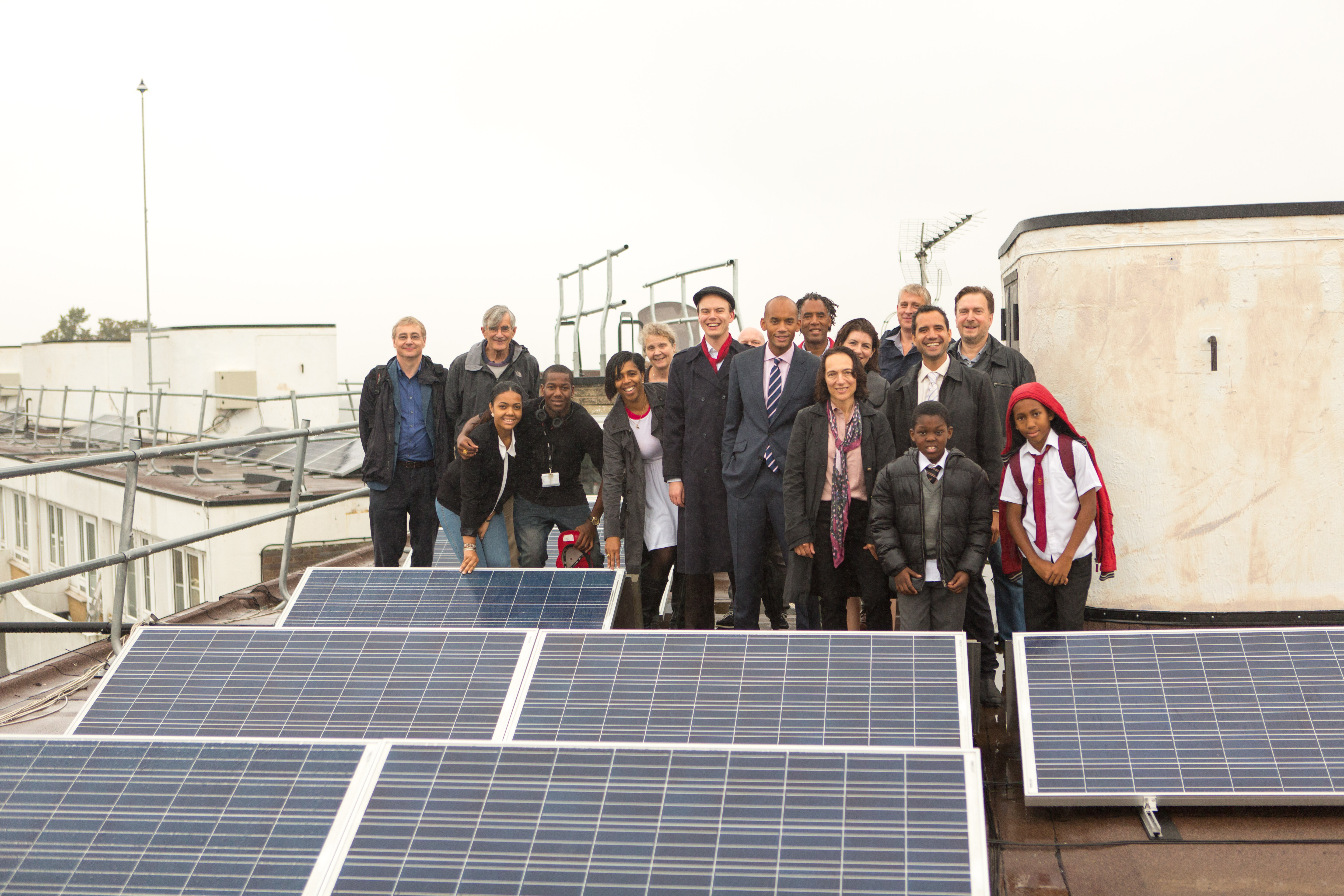
Furthermore, as the Commission moves towards developing guidance on energy poverty, it will be important to ensure that actions by energy communities are acknowledged and highlighted as a way to tackle this important social issue. Best practices should be coupled with policy recommendations for how Member States can support energy communities that want to be more socially inclusive and tackle energy poverty as a primary aim.
Sustainable Europe Investment Plan
Finance will play a key role in materialising the investment needed to make the Green Deal a success. According to the Commission, achieving the 2030 climate and energy targets will require additional investments of 260 billion euros per year by 2030. Indeed, citizens, small businesses and local authorities will need to contribute towards these investment needs. The Commission has communicated how it intends to facilitate and support such investment through its Sustainable Europe Investment Plan. Several components of this plan will be relevant to energy communities.
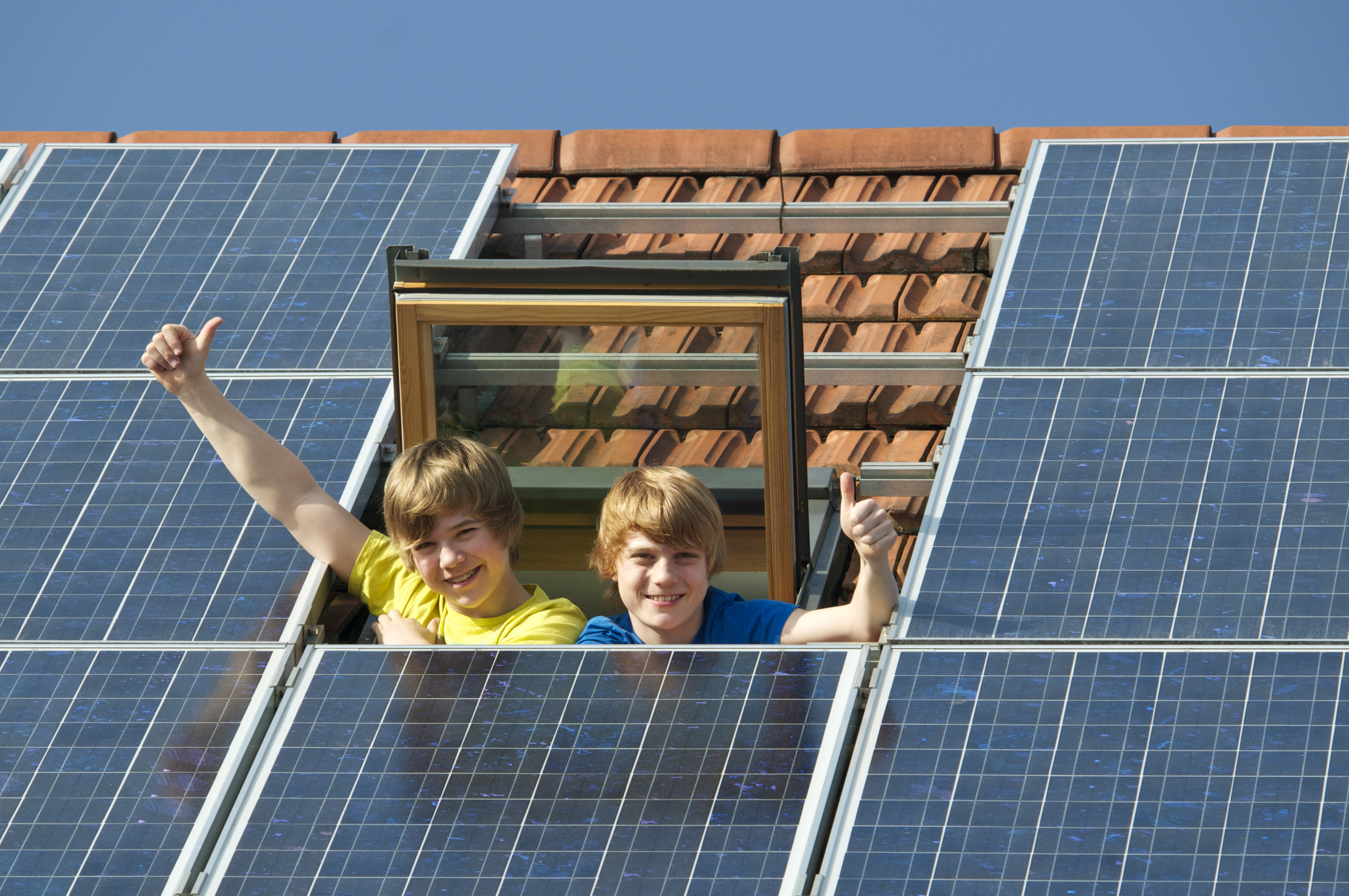
State aid guidelines
The existing guidelines on state aid for environmental protection and energy (EEAG) have been in force since 2014. Given the changes to technology and investment needs in the energy sector, these rules will now need to be revised. In particular, they do not align with the Clean Energy Package’s recognition, empowerment and support of energy communities, in particular RECs. In fact, because the state aid guidelines require Member States to adopt market-based forms of support for renewables – such as auctions and tenders – they create significant barriers for RECs to access finance and to enter the market.
The Commission has communicated its intent to revise the EEAG in 2021. The revised EEAG will need to support Member States’ implementation of rules on RECs. In particular, they will need to acknowledge energy communities and the unique challenges they face in participating in the energy market. A new section, or chapter, on energy communities may be needed, with specific support for the provision of finance, and new and innovative measures to ensure RECs can access renewables support schemes on an equal playing field with larger commercial market actors – including providing exemptions from tenders and auctions.
InvestEU and the EIB
EU funds will play an important role in de-risking investment by local communities into renewables, energy efficiency, and flexibility. In particular, InvestEU can be an important source of guarantees to get such projects up and running. While smaller energy communities projects are typically bankable, upfront investments often impede such projects from moving forward. Therefore, InvestEU will need to prioritise smaller local actors such as energy communities and local authorities, allowing for aggregation of projects, and providing upfront administrative support to make it easier for such projects to apply. EU funds also need to adopt coherent benchmarks and indicators to target specifically citizen-led projects.
REScoop.eu welcomes the EIB’s new energy lending policy, which commits to stop financing projects around fossil fuels, and to increase spending on climate action to 50% of its operations by 2025. Nevertheless, it will need to develop better ways of financing smaller, decentralised energy projects driven by local communities.
Public Procurement
Local authorities and energy communities are natural allies in the energy transition. One of the ways local authorities can support, and collaborate with, energy communities is through public procurement. EU Public Procurement legislation allows public authorities to use environmental and social criteria in tendering for products and services around energy.
In its Sustainable Investment Plan, the Commission has indicated that it will propose minimum criteria or targets for public procurement. This should include criteria around involving local citizens through direct participation, for instance through RECs and CECs. This will promote local collaboration between local authorities and citizens and drive local action and energy democracy.
Mobilising Research and Innovation
As part of the Green Deal, the Commission promised at least 35% of the budget for Horizon Europe, which helps fund research and innovation, will fund new climate solutions related to implementing the Green Deal. The Commission mentions that the research and innovation agenda should work across different sectors and disciplines, and involve local communities with initiatives that combine social elements.
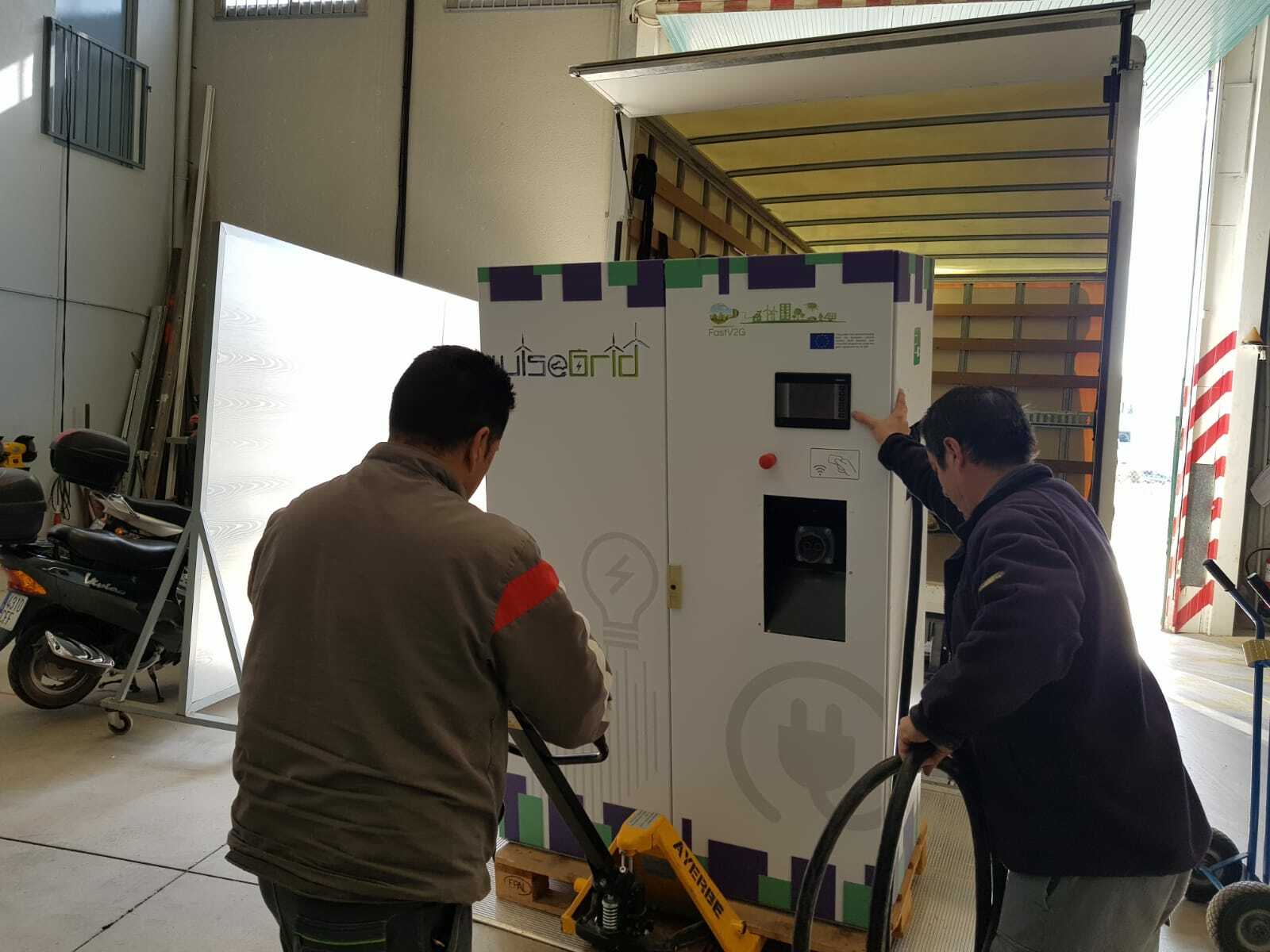
Under the EU’s new Multiannual Financial Framework (MFF), which sets the EU budget from 2021-2027, funding for components of Research & Innovation projects having a focus on social sciences and market uptake previously under Horizon 2020 will now be moved under the LIFE Programme. However, social innovation should still be a key priority for Horizon Europe. Technologies will only be successful if they are adopted, and ultimately accepted, by society. This is where energy communities can have a significant added value, thereby serving as a contact point between citizens and technology providers.
As SMEs and start-ups, the participation of energy communities in relevant Horizon Europe projects will need to be supported, not only with calls that are targeted towards empowering citizen ownership, but also with capacity support for applying for projects. The LIFE Programme will also need to focus on addressing barriers for the developing RECs and CECs, assisting local authorities, citizens, businesses and in being able to take advantage of new opportunities to take ownership in the energy transition. EU funds also need to recognise the specific character of community-led projects, not as a for profit endeavors, but has a collective non-commercial enterprises serving the public interest.
Conclusion
The European Green Deal represents a significant opportunity to align climate and energy ambition with local level action and empowerment. The fact that the Commission has acknowledged the need for a socially inclusive energy transition, as well as a role for citizen and community ownership in achieving the EU’s 2030 climate and energy objectives, is a good start. However, as the Commission rolls out its proposals for how to implement this vision, it will need to provide more concrete details and support for citizens and community empowerment, investment and ownership. At the very least, the von der Leyen Commission needs to prioritise making RECs and CECs a success through following up with robust implementation of the CEP, ensuring that their development is supported by the EU’s finance pillar, and that they are involved in flagship initiatives such as the buildings renovation wave. If this can be achieved, the Commission will have taken several important steps towards making community ownership in Europe’s energy transition a success.